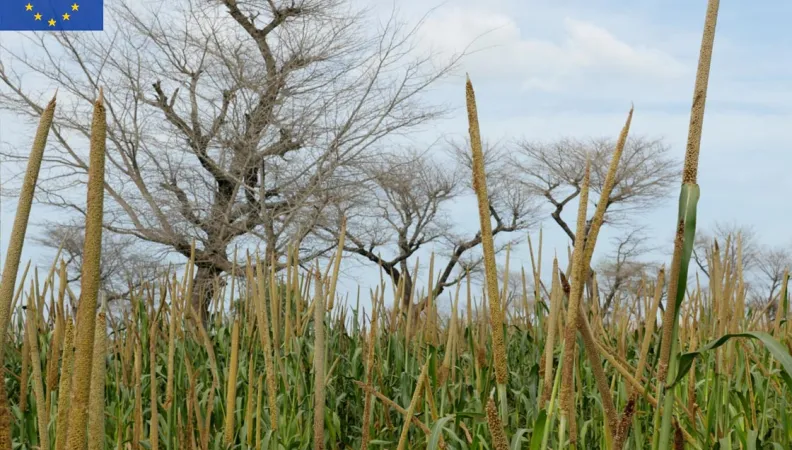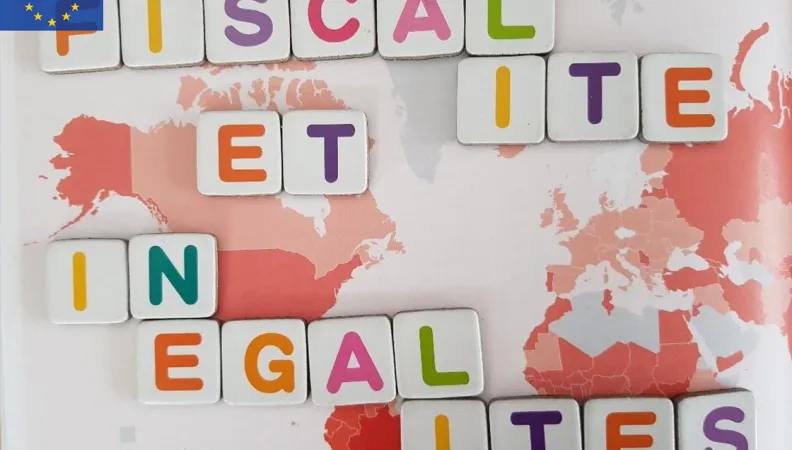 Legal notice EU (project) The goal of agroecological intensification is to increase productivity while avoiding the adverse environmental effects of mechanized conventional agriculture that uses chemical inputs. In order to carry out this agroecological transition, national incentives can be set up. This project seeks to evaluate the impact of these incentives on income inequalities in rural areas and to compare them with other types of public policies (subsidies for chemical fertilizers, for example).
Legal notice EU (project) The goal of agroecological intensification is to increase productivity while avoiding the adverse environmental effects of mechanized conventional agriculture that uses chemical inputs. In order to carry out this agroecological transition, national incentives can be set up. This project seeks to evaluate the impact of these incentives on income inequalities in rural areas and to compare them with other types of public policies (subsidies for chemical fertilizers, for example).
Context
Reducing poverty and income inequalities has been one of the priorities of Senegalese governments since the end of the 1990s. While progress has been made, 23% of households surveyed in 2011 still considered themselves as very poor. To reduce these inequalities and promote growth that is beneficial to the poorest, it is crucial to develop the agricultural sector. There are various possible trajectories for doing so. One is intensification of agroecology, which seems to be good choice for this development, in particular for environmental reasons. For example, several projects have shown that agroecological practices enable productivity comparable to conventional agriculture while at the same time being much more friendly to the environment and the climate. However, there are have been few studies that have quantified the impact of these practices on farmer income and especially on income inequalities, despite the fact that this is a fundamental parameter for achieving the goals of eliminating severe poverty.
This project is part of the first phase of the Research Facility on Inequalities, coordinated by AFD and funded by the European Commission's Directorate-General for International Partnerships over the 2017-2020 period. The first phase of the Facility has led to the conduct of 22 research projects and the publication of around 100 research papers and policy briefs.
Goal
The objectives of this research project are to:
- quantify the current income inequalities in rural areas in Senegal;
- analyze what impact different types of public policies that promote agroecology would have on these inequalities.
It is therefore a question of determining the type of grant for Senegal’s agricultural sector that is most likely to reduce inequalities. Different types of inequalities are studied: by gender, within a single community, and between two communities located in different agroecological zones.
Method
This project uses a multidisciplinary approach which combines participatory workshops in rural areas and a stage of bio-economic modeling of outcomes during the workshops. To do so, outcomes, and models already used in international projects (e.g. AMMA-2050) are being expanded and improved. The analysis must also focus on a sector very largely neglected in the past: the combined systems of farming and or livestock raising. Two agroecological zones are being studied under two contrasting climates: one symbolizing the current climate and the other, defined by climatologists, representing the future climate. This will help assess the relevance of agroecology faced with climate change adaptation and to quantify its contribution to the resilience of vulnerable populations.
Results
You may find the research papers here (in French) :
- Inégalités de revenu en milieu rural dans le bassin arachidier du Sénégal
- Impact de différentes politiques publiques sur l'intensification agroécologique et les inégalités de revenu dans le bassin arachidier du Sénégal
You may find the policy briefs here:
 Legal notice EU (project) Via their tax component and their component of transfers and public expenditure, budget policies are a crucial instrument for governments in their fight against inequalities. This research project seeks to improve understanding of the relationship between income inequalities and these budget policies in developing countries.
Legal notice EU (project) Via their tax component and their component of transfers and public expenditure, budget policies are a crucial instrument for governments in their fight against inequalities. This research project seeks to improve understanding of the relationship between income inequalities and these budget policies in developing countries.
Context
Reduction of inequality is one of the core Sustainable Development Goals (SDGs). One of the targets of SDG 10 is for income growth of a country’s poorest 40% to be higher than the national average. Reaching this objective requires setting up economic policies on public expenditures and taxes that will benefit the poorest people. At the same time, mobilizing tax revenue can play a key role in financing the SDGs, but it is important to understand under what conditions this higher level of tax revenue collection is reconcilable with the goal of reducing inequalities.
This project is part of the first phase of the Research Facility on Inequalities, coordinated by AFD and funded by the European Commission's Directorate-General for International Partnerships over the 2017-2020 period. The first phase of the Facility has led to the conduct of 22 research projects and the publication of around 100 research papers and policy briefs.
Goal
This research project seeks to improve understanding of the relationship between income inequality and budget policies in developing countries. The study is divided into three parts:
- Investigation into the redistributive impact of taxes, transfers, and public expenditure in three countries of West Africa (Côte d’Ivoire, Mali, and Senegal). The analysis will try to answer the following questions:
- Who pays taxes, and who benefits from the transfers and public expenditures?
-
What is the overall impact of the tax and transfer systems on inequalities?
-
What tax instrument can mobilize revenues while reducing poverty and inequality?
- Study of the effect on inequalities from applying different types of taxes in the developing countries. Is the increase in tax revenues (measured by the ratio between revenue and GDP) linked to a reduction or an increase in inequalities? The relationship between the type of taxes levied and the change in inequalities within a country and between different countries will be studied in order to identify which taxes are progressive or regressive.
- Analysis of tax compliance behaviors in Africa, by identifying how the level of inequalities affects citizens’ attitude towards taxes.
Method
This research project will use econometric quantitative studies based on household survey data and macro-economic data available on a large number of countries (Parts 2 and 3). Microsimulation tools will also be used (Part 1).
Results
You may find the research papers and the policy briefs here :
Research papers:
- Fiscal consolidation and health inequality: Evidence from infant mortality in Sub-Saharan Africa
- Collect more, spend better? Assessing the incidence of fiscal systems and public spending in three francophone West African countries
- Inequality in the public good provision and attitude towards taxation: sub-national evidence from Africa
Policy briefs:
- Collect more, spend better? Enhancing fiscal redistribution in West Africa
- Fiscal consolidation in Sub-Saharan Africa: Unequal effects on children’s health
- Building fiscal capacity in Sub-Saharan Africa: The role of local inequality
- Measuring local inequality: Insights from data on night lights
Find also the presentation of the research paper "Inequality in the public good provision and attitude towards taxation: sub-national evidence from Africa" by Marin Ferry, Senior Lecturer at Gustave Eiffel University / Associate Researcher IRD-DIAL during the fourth webinar of the Research Facility on Inequalities:
Contact: Hélène Ehrhart, Economist, AFD
